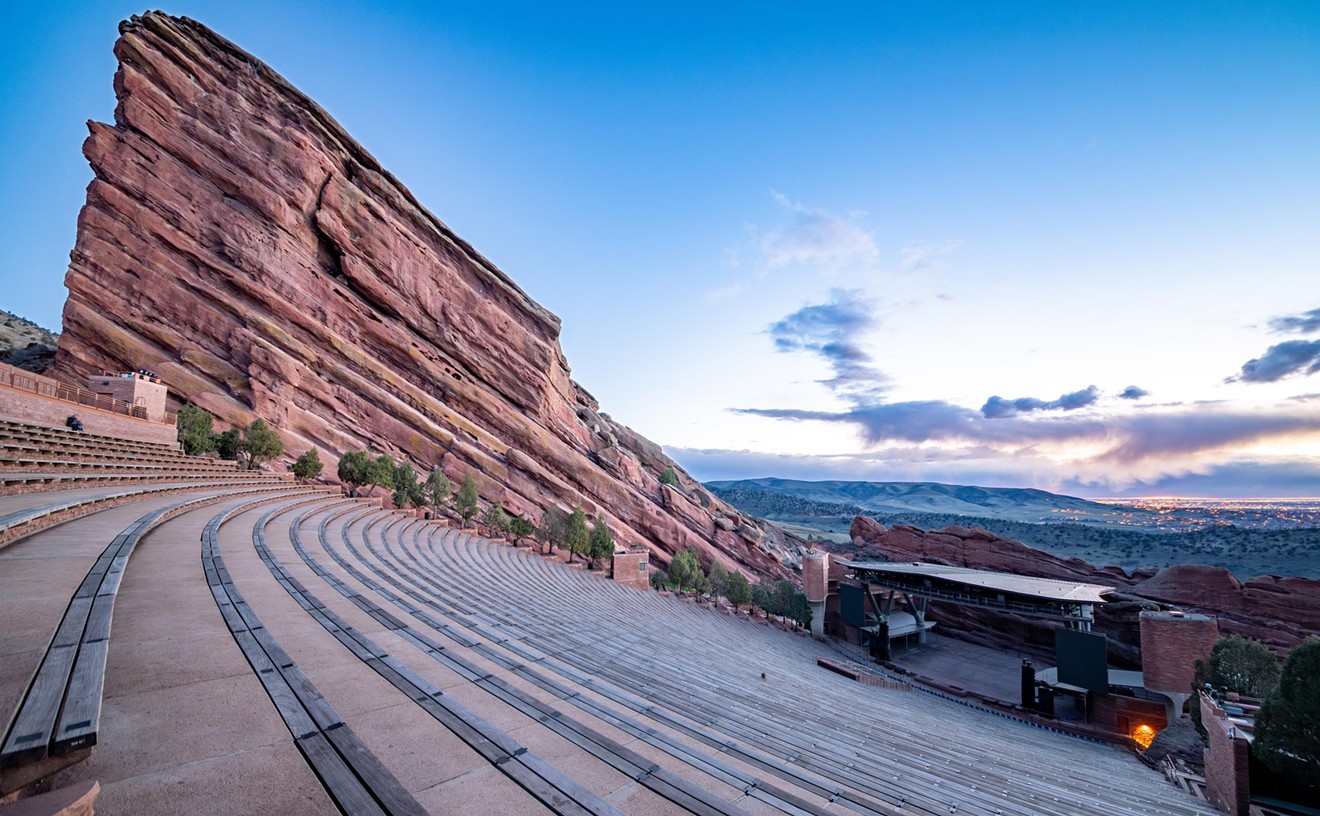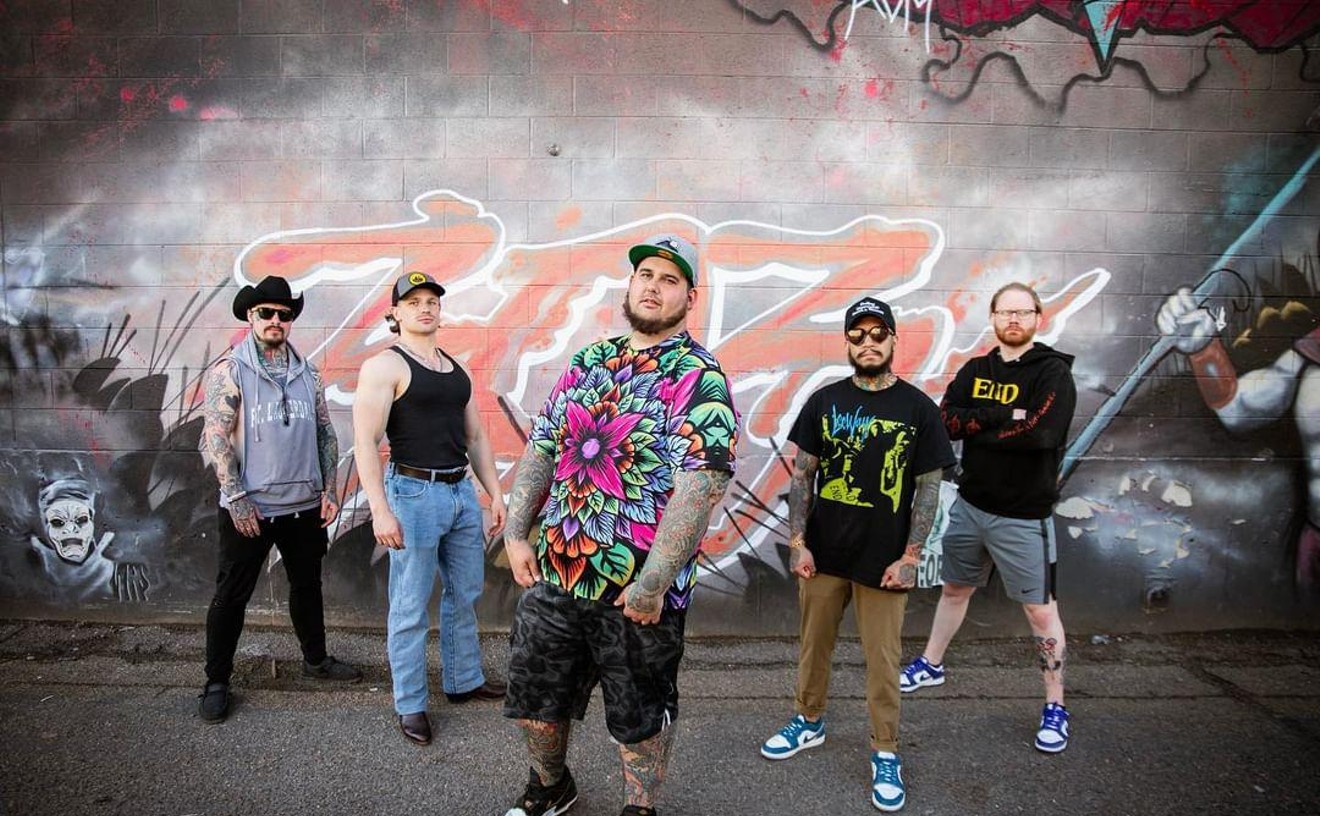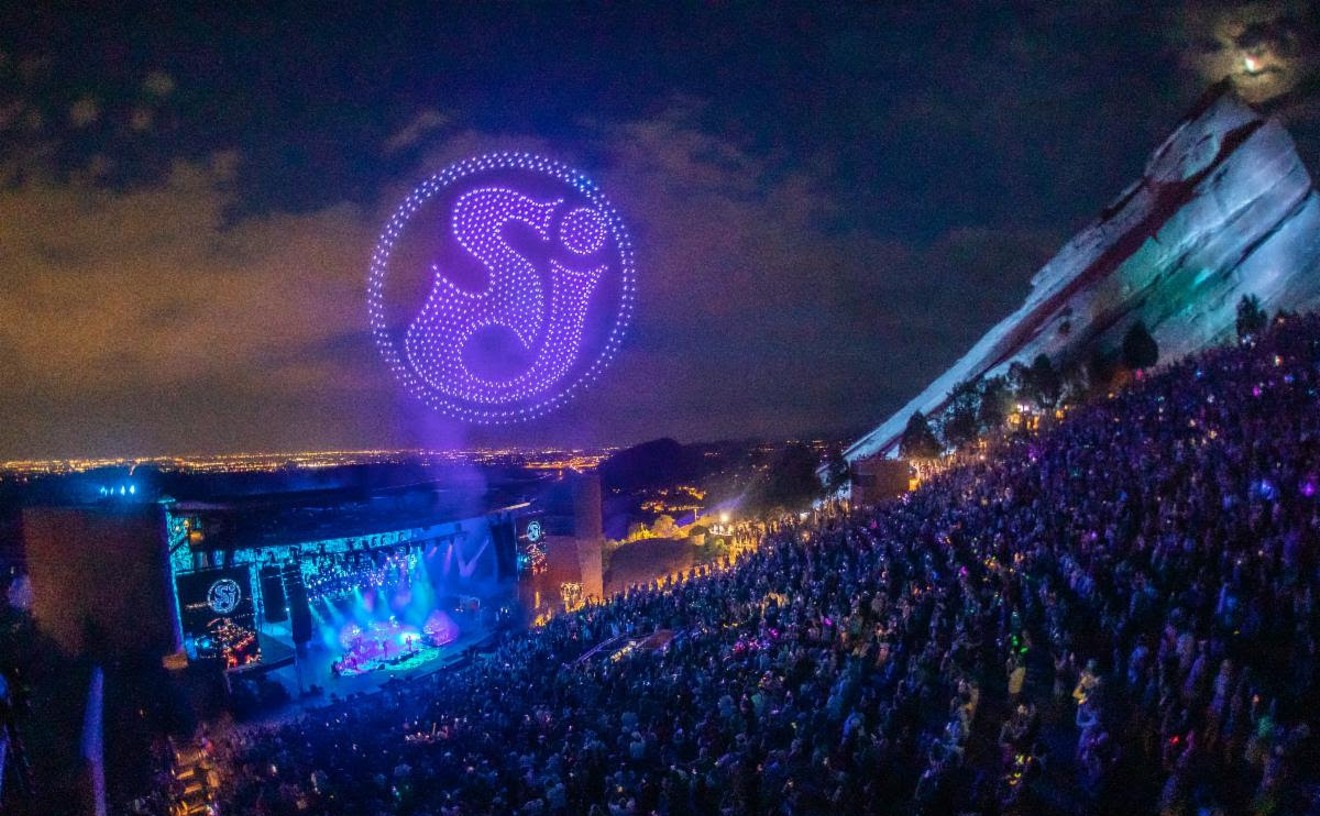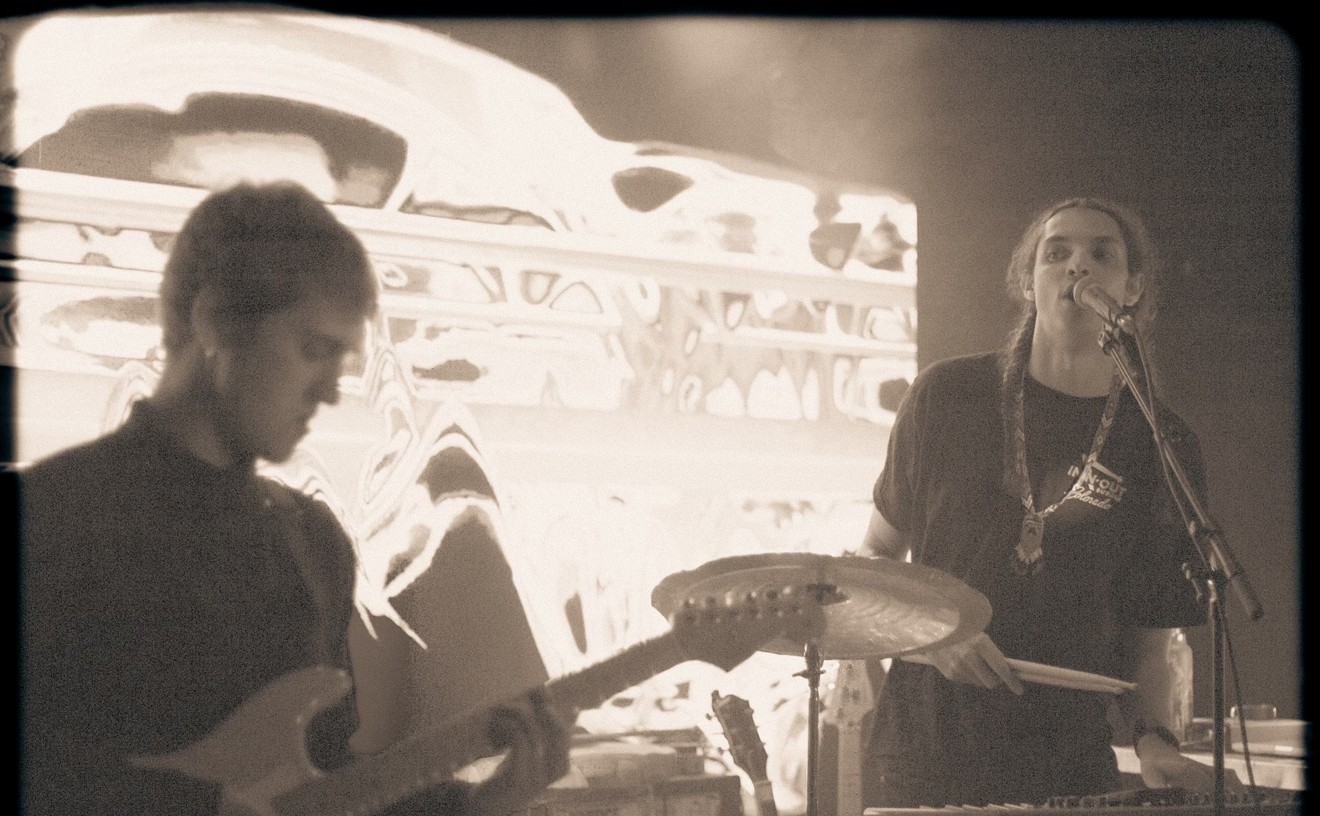Talk to young artists, and they’ll tell you the hip-hop scene in Denver is just getting going; that they will be the next big thing and put Colorado on the map. Of course, youthful rappers have been making that claim since the ’80s, despite Denver never gaining the hip-hop notoriety of Compton, Atlanta, Brooklyn, Houston or Detroit.
Even so, over the years, rappers, DJ crews, graffiti writers and B-boys have made their mark in Colorado and beyond.
With this year’s Artopia celebrating decades of hip-hop at The Church on March 1, we reached out to a handful of players in the Colorado scene — a longtime promoter, a studied fan who has cooked food for hip-hop artists, a multi-talented B-boy and MC, and an emerging rapper — to get their take on where local hip-hop’s been and where it’s going.
This is the third in the series.
While other rappers throw Benjamins into the air and wax their Ferraris, MC and B-boy Mike Wird waxes about the virtues of healthy living and eco-friendly shelters known as earthships.
Along with artists like Ietef Cavem Moetavation and Ill Se7en, Wird is part of Colorado’s politically minded crunchy hip-hop scene, which takes aim at capitalism, eco-racism and gentrification while celebrating black culture and African heritage.
But Wird is no purist.
The 36-year-old recently returned from a wealth-building seminar in California, where he boned up on short-term rental investment strategies (think Airbnb), a hobgoblin of anti-gentrification activists.
“I’m into economics, empowerment, financial literacy, real estate investment, just really securing mine and other peoples’ situations more with having financial literacy,” he says.
The workshop in California was thrown by financial guru J Massey of Cashflow Diary.
“He’s a black man, first off, that makes a lot of money and is very generous with his information,” Wird says. “You know how rare that is for a person of color to have such financial savvy as he does? It’s really inspiring to have that access.”
Teaching others about financial literacy is something Wird hopes to do one day. For now, he’s trying to build wealth by creating a strong economic foundation for his family and his creative pursuits as a hip-hop polymath.
“In hip-hop, we’re used to dissing out the man and dissing out capitalism,” he says. “You know, if you really look deeper, it’s never been about that — dissing out capitalists. Honestly, all my favorite artists have found a beautiful way to dance with it.”
Wird’s tango with capitalism and hip-hop has been going on since the late ’90s, when he was a high school student in Aurora.
“I listened to Digable Planets and A Tribe Called Quest, but I had no idea that it was a movement, that this was bigger than some music that I’m hearing,” he remembers. “My best friend was a graffiti writer, and all that shit went right over my head. I had no idea what he was into.”
At eighteen, Wird headed to Washington to study international business at the University of Seattle. But his interest in school waned, and he started studying up on hip-hop. Only then did he realize it was a culture he had always been a part of.
“I’m getting introduced to Gang Starr and the Mountain Brothers and Hieroglyphics and all these other areas of the country that are into hip-hop music,” he says. “I’m hearing what the guys are talking about, you know? They’re actually talking about shit that I can talk about.”
Even Wird’s passion for basketball took a back seat to music.
“Now I’m like, I’m exposed to this, and I’m not playing basketball, and, oh, there’s this thing called breaking,” he says. “I was gonna start breaking instead of playing basketball. Oh, and I can write poetry and turn it into rap music and go to open mics.
“I became obsessed,” he explains. “I went to school for international business, and I was like, this is it. I can become a hip-hop artist, and there’s my international business. I can go travel all around the world and perform it.”
Wird returned to Colorado in 2001 and continued breakdancing, writing graffiti and emceeing. He also often visited what was then known as the Spot, a downtown hangout with a recording studio for youth that hosted music, breakdancing and graffiti workshops. There he dug into local hip-hop history.
“I was on a mission to uncover the roots of hip-hop in Denver, for myself and for my persona as a hip-hop artist, as an MC, as a rapper,” he recalls.
At the Spot, he connected with the older B-boy crew GWT (short for Get With This) and learned about other older hip-hoppers, like Lords of Finesse.
“A lot of them first-generation guys, they’re pretty ’hood, man,” Wird says. “But if you have this common love for hip-hop, it was like, that was the buffer, that was the medicine. It was like, create medicine between our relationships, where none of that ’hood stuff existed, none of that competition to the point of defending territory and killing and stuff.”
Hip-hop had become Wird’s spirituality.
“It’s a different way to live my life, because I chose to dedicate it to hip-hop and to being an MC and to being a hip-hop artist,” he says. “Denver, it took care of me, man. I would travel all over. I started to focus it, to dedicate my life to the dance form and the deejaying culture, the sample culture, making beats, emceeing, rhymes, rapping.”
Over the years, he’s thrown breakdancing competitions across the Front Range, dropped albums, performed alongside some of his heroes, and has built a reputation as a visionary and dreamer.
“This is twenty years. There’s probably not one hip-hop artist you could name that I don’t somehow have a connection to,” he says.
Meanwhile, he’s had children, built a life in Boulder and passed on his knowledge to the next generation through workshops at nonprofits like Youth on Record.
“The intent is always to expand, ultimately just to expand. And I’ve done it. I’ve got four children. I didn’t have that when I first got going on this,” he says. “That’s a big reason why I was just in California doing wealth training — just straight-up financial shit.”
Even so, he has not abandoned his spiritual calling to hip-hop culture, and he remains upbeat about his growth as an artist, even if his knees are too beat up to breakdance these days.
“I’m 36 years old, about to be 37. I do shows. I make records. It’s tough,” he admits. “I’ve got to figure out a way to pull it together, no matter how long it takes. That’s the beauty of the culture. Not all the rules have been written.”
Artopia 2019 will celebrate decades of hip-hop culture on Friday, March 1, at The Church, 1160 Lincoln Street. Find the complete lineup of artists and performers, as well as ticket information, at westwordartopia.com.
[
{
"name": "Air - MediumRectangle - Inline Content - Mobile Display Size",
"component": "12017618",
"insertPoint": "2",
"requiredCountToDisplay": "2",
"watchElement": ".fdn-content-body",
"astAdList": [
{
"adType": "rectangle",
"displayTargets": "mobile"
}
]
},{
"name": "Editor Picks",
"component": "17242653",
"insertPoint": "4",
"requiredCountToDisplay": "1",
"watchElement": ".fdn-content-body",
"astAdList": [
{
"adType": "rectangle",
"displayTargets": "desktop|tablet"
},{
"adType": "rectangle",
"displayTargets": "desktop|tablet|mobile"
}
]
},{
"name": "Inline Links",
"component": "18838239",
"insertPoint": "8th",
"startingPoint": 8,
"requiredCountToDisplay": "7",
"maxInsertions": 25
},{
"name": "Air - MediumRectangle - Combo - Inline Content",
"component": "17261320",
"insertPoint": "8th",
"startingPoint": 8,
"requiredCountToDisplay": "7",
"maxInsertions": 25,
"watchElement": ".fdn-content-body",
"astAdList": [
{
"adType": "rectangle",
"displayTargets": "desktop|tablet"
},{
"adType": "rectangle",
"displayTargets": "desktop|tablet|mobile"
}
]
},{
"name": "Inline Links",
"component": "18838239",
"insertPoint": "8th",
"startingPoint": 12,
"requiredCountToDisplay": "11",
"maxInsertions": 25
},{
"name": "Air - Leaderboard Tower - Combo - Inline Content",
"component": "17261321",
"insertPoint": "8th",
"startingPoint": 12,
"requiredCountToDisplay": "11",
"maxInsertions": 25,
"watchElement": ".fdn-content-body",
"astAdList": [
{
"adType": "leaderboardInlineContent",
"displayTargets": "desktop|tablet"
},{
"adType": "tower",
"displayTargets": "mobile"
}
]
}
]













